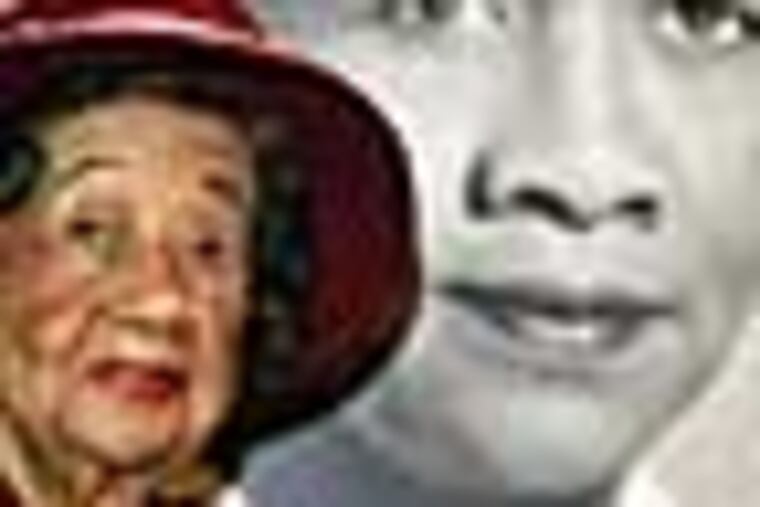Dorothy Height, a civil rights giant
Dorothy Height, 98, dubbed the queen mother of the civil rights movement through seven decades of advocacy for racial and gender equality - including 41 years as president of the National Council of Negro Women - has died.

Dorothy Height, 98, dubbed the queen mother of the civil rights movement through seven decades of advocacy for racial and gender equality - including 41 years as president of the National Council of Negro Women - has died.
Ms. Height, who also played a key role in integrating the YWCA, died Tuesday of natural causes at Howard University Hospital in Washington, the council said.
Though not nearly as well-known as her male contemporaries, Ms. Height was a steadfast presence in the civil rights movement.
Often the only woman at strategy meetings with the Rev. Dr. Martin Luther King Jr. and other leaders, she pressed the importance of issues affecting women and children, such as child care and education.
Beginning in the 1930s, she helped shape the national agenda for the YWCA. Traveling across the nation, she prodded local chapters to implement interracial charters at a time when resistance to integration was often fierce.
In a statement, President Obama called her "the godmother of the civil rights movement" and a hero. She "devoted her life to those struggling for equality . . . and served as the only woman at the highest level of the civil rights movement - witnessing every march and milestone along the way," he said.
As president of the National Council of Negro Women from 1957 to 1998, she led the group to expand its mission.
Her initiatives included training women - homemakers, teachers, office workers, students - to work as community advocates. Back in their communities, they pushed for better housing, schools, and stores.
It was a way to help women escape what she called the "triple bind of racism, sexism, and poverty."
Eleanor Smeal, president of the Feminist Majority Foundation, said, "Dorothy understood from the beginning the importance of both the civil rights movement and the women's rights movement and how they're intertwined."
The daughter of a nurse and a building contractor, Ms. Height was born March 24, 1912, in Richmond, Va., and grew up in Rankin, in Western Pennsylvania, where she earned top grades in school and distinguished herself with her oratory skills.
After graduating from high school at 16, she was accepted into Barnard College in New York but was told she had to delay her entrance a year because the school had met its annual quota of two African American students.
Instead she entered New York University, which had no such quota, earning bachelor's and master's degrees in social work. She never married and had no children.
She joined the YWCA in 1937 and was there during a critical period in the organization's history as it grappled with the issue of race.
In the 1940s, she pushed to end the YWCA's practice of separate conferences - one for black leaders and another for whites - and traveled the country helping local chapters implement the organization's interracial charter.
On one trip, a white police officer threatened her life when she defied his order to wait for a train in the "colored waiting room," rather than on the platform with her white colleagues.
She later wrote about the incident: " 'This is my train,' I called, starting to run, and he growled, "Don't you go straight on that train or I'll blow your brains out.' " White colleagues surrounded her as they entered the train.
She was a 25-year-old assistant director at the YWCA in Harlem when Eleanor Roosevelt and Mary McLeod Bethune, the founder of the National Council of Negro Women, visited. Ms. Height was assigned the job of escorting the first lady, but a conversation with Bethune, the daughter of former slaves, altered the course of her life.
We need you at the council, Bethune said to her.
"I remember how she made her fingers into a fist to illustrate for the women the significance of working together to eliminate injustice," Ms. Height wrote in her 2003 memoir, Open Wide the Freedom Gates.
She began volunteering at the council and in 1957 became the organization's fourth president as the civil rights movement mobilized for major battles in the South.
As King and his associates planned what would become the historic March on Washington, she pushed to add a woman to the list of leaders scheduled to address the marchers, but the idea was rejected.
"In the end, Mahalia Jackson, who sang the national anthem, was the only female voice," Ms. Height wrote, adding, "They were happy to include women in the human family, but there was no question as to who headed the household!"
In 2004, President Bush presented her with the Congressional Gold Medal.